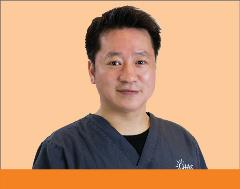Dr. Yoon Encourages Dentists to Listen to Patients’ Stories
 When general dentists are asked why they chose to enter the profession, many say it was to positively impact the lives and health of patients. Many dentists, especially those who also spend a significant portion of their time and careers offering their services on a volunteer basis, emphasize that the positive impact from helping patients is a two-way street. Cheon Joo Yoon, DDS, encourages his fellow AGD members to remember that all patients have important stories to tell and that, from the moment they sit down in your dental chair, your stories are connected. He shared the following story.
When general dentists are asked why they chose to enter the profession, many say it was to positively impact the lives and health of patients. Many dentists, especially those who also spend a significant portion of their time and careers offering their services on a volunteer basis, emphasize that the positive impact from helping patients is a two-way street. Cheon Joo Yoon, DDS, encourages his fellow AGD members to remember that all patients have important stories to tell and that, from the moment they sit down in your dental chair, your stories are connected. He shared the following story. Every day, we come across so many people. Everyone has their own unique and interesting stories, but we miss so many of these stories because there is no time to sit and talk. One of the reasons I enjoy dentistry is because of the daily interactions with people. Many dental procedures take time. This time gives me the chance to learn their stories — both ordinary and extraordinary life experiences and journeys.
For several years, I have observed a dentist in the military who often says, “What is your story?” instead of “hello” when seeing patients for the first time. Some are perplexed by the question, but others respond quickly and explain not only what brings them to the dental chair but also how or why they joined the military. Often, patients have many stories to share. While they are in our dental chairs, our stories meet, and new stories are created. All of us long to make our own stories the way we want them to turn out. But, most of the time, our stories, although ours, are beyond our control.
For two weeks in June 2021, I participated in military training in a small Midwestern town while treating the underserved communities in the area. As I worked with extraordinary dental team members, many stories were shared and created. Each of the team members made strides as we overcame hurdles like burglary of equipment the night before opening, excessive heat, limited staffing and resources compared with the community’s needs, and storm-driven power outages. Despite such hardships, great stories were made. Even after my time in training, one patient and his stories stayed with me. R.W., who is in his mid-50s, showed up on the first day for his dental treatment. Because he had many dental issues to attend to, I saw him for four consecutive days. I admired his commitment. Often, patients don’t come back even if we plead with them, but R.W. showed up again and again. And, while in the dental chair, he shared his unique stories with me and the other team members.
As a young man, R.W. worked at a hospital as an imaging technician. He had (and still has) diabetes and was taking certain medications at the time. One of them was metoclopramide to treat gastroparesis, a form of stomach muscle paralysis that affects many diabetics. One of the black box warnings for metoclopramide mentions irreversible tardive dyskinesia, which may cause involuntary movements in the face and neck, like unintentionally smacking the lips, sticking out the tongue, puckering the mouth, and shaking the arms and legs.
He told me, “I don’t remember what I did, but they let me go.” He said he was fired without prior notice, and he assumes that his employers probably weren’t aware of the side effects of his medication.
Eventually, he lost his home and, ever since, has been living in his mother’s small Toyota sedan with disability benefits as his only means. Being 6 feet, 4 inches tall, it’s hard for him to stretch his legs when sleeping in the car. I still remember his genuine smile as he mentioned how comfortable it was in the dental chair with his legs stretched out. He also longs to see his adult daughter living in the Chicago area, but, according to R.W., she doesn’t want to see him because he is homeless. This is just a glimpse of his story.
R.W.’s story really made me ponder the unintended consequences of intended plans in our lives. I am certain that the scientists who developed metoclopramide did so to help patients. But some diabetic patients, like R.W., experience side effects that significantly affect their stories. Our society develops, produces and uses drugs, policies and systems to make lives better. Because most of us who are privileged benefit from these man-made products and systems, we often forget or ignore those who suffer due to them. In this case, the unintended consequences don’t just impact R.W.’s story, they also ripple through the stories of friends and loved ones.
Since I started practicing, I have encountered many patients in my dental chair. I will continue to treat them. But there will be one big change. I will be leaning more toward the chair to intentionally listen to, learn from and reflect on their many stories.
